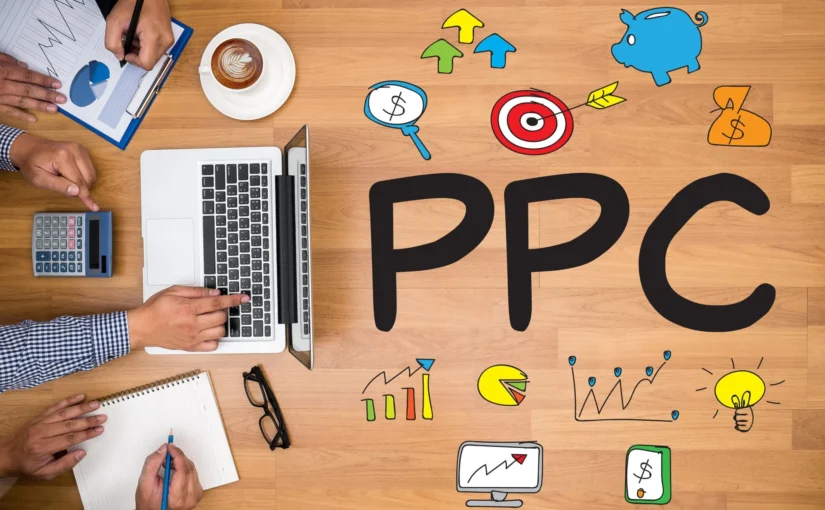7 Essential Google Ads Tips for Effective Campaign Management
Google Ads is a powerful platform for driving targeted traffic and achieving business goals. However, its complexity can be daunting, especially for those new to digital advertising. This blog will explore seven essential tips for maximizing your Google Ads campaigns, featuring the latest statistics and a Q&A format for clarity.
1. Start with Remarketing Campaigns
Remarketing campaigns are an effective way to re-engage users who have previously interacted with your website or app. By targeting these users, you can encourage them to return and complete desired actions, such as making a purchase or signing up for a newsletter.
- Tip: Implement remarketing tags on your website from the outset. This allows you to build a list of potential customers who are already familiar with your brand, increasing the likelihood of conversion.
Q: What are the benefits of starting with remarketing campaigns?
- A: Remarketing helps improve conversion rates by targeting users already interested in your products or services, often resulting in a lower cost per acquisition (CPA) compared to reaching new audiences.
2. Leverage the Display Network for Cost-Effective Clicks
The Google Display Network (GDN) can provide a more cost-effective way to reach a large audience compared to the Search Network. While clicks from the GDN are often cheaper, they can still convert well if targeted correctly.
- Tip: Use precise targeting options, such as demographic targeting, affinity audiences, and custom intent audiences, to ensure your ads reach the right people.
Q: How does the Display Network compare to the Search Network in terms of cost and performance?
- A: The Display Network generally offers lower cost-per-click (CPC) rates, but the conversion rate can vary depending on the targeting and ad creatives used. It’s ideal for brand awareness and remarketing efforts.
3. Define Clear Key Performance Indicators (KPIs)
Establishing clear KPIs is crucial for assessing the effectiveness of your Google Ads campaigns. KPIs should align with your overall business objectives, such as increasing sales, generating leads, or enhancing brand visibility.
- Tip: Choose KPIs that reflect meaningful actions on your website, like conversions, revenue generated, or return on ad spend (ROAS), rather than focusing solely on metrics like click-through rate (CTR).
Q: What are some examples of meaningful KPIs for Google Ads campaigns?
- A: Examples include conversion rate, cost per conversion, and average order value. These metrics provide a more comprehensive view of your campaign’s performance in relation to your business goals.
4. Prioritize Conversions Over Clicks
While CTR is an important metric, it doesn’t always correlate with successful campaign outcomes. Focusing on conversions provides a more accurate measure of your campaign’s effectiveness in driving valuable actions.
- Tip: Implement conversion tracking on your website to measure specific actions, such as form submissions, purchases, or phone calls.
Q: Why is conversion tracking essential for evaluating Google Ads performance?
- A: Conversion tracking allows you to attribute specific actions to your ads, providing insights into what drives the best results and enabling you to optimize your campaigns accordingly.
5. Begin with the Search Network and a Targeted Keyword List
Starting with the Search Network allows you to capture intent-driven traffic—users actively searching for products or services you offer. Building a targeted list of keywords is crucial for reaching the right audience.
- Tip: Use Google’s Keyword Planner to identify relevant keywords and understand search volumes. Focus on a mix of short-tail and long-tail keywords to balance competition and search intent.
Q: How can I create an effective keyword list for my campaign?
- A: Consider user intent, competition, and relevance. Use a combination of exact, phrase, and broad match keywords to capture different search behaviors and refine your targeting.
6. Understand Different Keyword Match Types
Keyword match types control which searches trigger your ads, offering varying levels of control over who sees them. It’s essential to understand these types to optimize ad spend and minimize irrelevant traffic.
- Tip: Start with exact match keywords to gain precise control, especially if you’re working with a limited budget. Expand to phrase or broad match as you gather more data.
Q: What are the differences between exact, phrase, and broad match keywords?
- A: Exact match triggers ads for searches that match your keyword exactly, phrase match includes searches that contain your keyword, and broad match shows ads for searches related to your keyword. Each offers different levels of reach and control.
7. Use Automated Ad Rotation and Regularly Update Ads
Automated ad rotation helps optimize your ads by prioritizing the best-performing creatives. Regularly updating your ads ensures they remain fresh and relevant, reducing ad fatigue.
- Tip: Set your ad rotation to optimize for conversions, and review performance data to identify which ads work best. Rotate new ads every few weeks to maintain engagement.
Q: How often should I update my Google Ads creatives?
- A: Updating your ads every 4-6 weeks is a good practice to keep your audience engaged and to test new messaging and visuals.
Conclusion
Mastering Google Ads requires a blend of strategic planning, continuous optimization, and a deep understanding of the platform’s features. By implementing these seven tips, you can improve the efficiency and effectiveness of your campaigns, ultimately driving better results for your business. Stay updated with the latest trends and tools in digital advertising to keep your campaigns competitive and successful. Optimizing your Google Ads Campaigns ensures that your business achieves better click-through rates, lower cost-per-click, and higher conversion rates, maximizing the return on your investment.
Are you interested in PPC Marketing ?
Questions on Google Ads? Google Display Network ? Google Remarking ? First Party Data ?
Contact us Today for FREE consultation.
We are here to help you reach your goals within your defined Budge !
People Also Ask
- How much do Google Ads cost?
- Are Google Ads Free?
- What are Google Ads and how do they work?
- How can I get Google Ads for free?
Related searches
- google ads sign in
- google ads for youtube
- google ads keyword planner
- google ads account
- google ads manager
- google adsense
- create google ads


